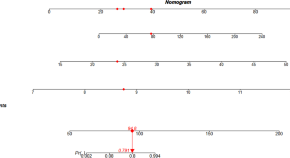
Collection
Lipids as signaling molecules
- Submission status
- Closed
Lipids in Health and Disease invites you to submit to this thematic series. While once viewed as a passive mode of energy storage, lipids are now well-understood to serve as integral components of biological membranes and to function as key intracellular and extracellular messengers. Through this role as signaling molecules, both dietary as well as endogenously synthesized and modified lipids modulate key signaling pathways in the cell. Aberrant lipid-mediated signaling has been implicated in a variety of pathologies, including metabolic diseases, chronic inflammation, cancer, and Alzheimer’s disease. The ability of adipose tissue to elaborate a significant number of signaling molecules may lead to its interpretation as an endocrine organ! The lipid molecules for the purpose of this article collection include: saturated and unsaturated fatty acids and their metabolites, sphingolipids and ceramides, endocannabinoids, and other species that are generally regarded as lipids. The collection of papers in this issue addresses the role of lipids as key signaling molecules in health and disease. We would particularly welcome manuscripts that try to bridge the gap between molecular and biochemical aspects of various lipids and their potential clinical applications/implications.
Manuscripts should be formatted according to our submission guidelines and submitted via the online submission system. In the submission system please make sure the correct collection title is chosen from the additional information tab. Please also indicate clearly in the covering letter that the manuscript is to be considered for the "Lipids as signaling molecules" series.
Articles (9 in this collection)
-

-
Intervention time decides the status of autophagy, NLRP3 activity and apoptosis in macrophages induced by ox‐LDL
Authors (first, second and last of 8)
- Liang Zheng
- Hongbiao Xu
- Wenjian Wang
- Content type: Research
- Open Access
- Published: 25 October 2022
- Article: 107

-
FGF15 promotes hepatic NPC1L1 degradation in lithogenic diet-fed mice
Authors (first, second and last of 10)
- Pingfan Mo
- Hongtan Chen
- Guoqiang Xu
- Content type: Research
- Open Access
- Published: 08 October 2022
- Article: 97

-
ANGPTL3 is involved in kidney injury in high-fat diet-fed mice by suppressing ACTN4 expression
Authors (first, second and last of 7)
- Guanyu Li
- Di Lu
- Xia Gao
- Content type: Research
- Open Access
- Published: 19 September 2022
- Article: 90

-
Alcohol-dependent downregulation of apolipoprotein H exacerbates fatty liver and gut microbiota dysbiosis in mice
Authors (first, second and last of 7)
- Yaming Liu
- Zhe Wu
- Jianlin Ren
- Content type: Research
- Open Access
- Published: 19 September 2022
- Article: 89

-
A novel fatty acid metabolism-related signature identifies features of the tumor microenvironment and predicts clinical outcome in acute myeloid leukemia
Authors (first, second and last of 16)
- Hai-Bin Zhang
- Zhuo-Kai Sun
- Xiao-Zhong Wang
- Content type: Research
- Open Access
- Published: 25 August 2022
- Article: 79

-
Association of circulating vaspin levels and patients with metabolic-associated fatty liver disease: a systematic review and meta-analysis
Authors (first, second and last of 6)
- Yuqing Zhu
- Yani Ke
- Jie Hu
- Content type: Review
- Open Access
- Published: 02 July 2022
- Article: 57

-
Comparison of the diagnostic value between triglyceride-glucose index and triglyceride to high-density lipoprotein cholesterol ratio in metabolic-associated fatty liver disease patients: a retrospective cross-sectional study
Authors (first, second and last of 7)
- Zhi Liu
- He He
- Shuangqing Li
- Content type: Research
- Open Access
- Published: 25 June 2022
- Article: 55

-
Hyperlipemia pancreatitis onset time affects the association between elevated serum triglyceride levels and disease severity
Authors (first, second and last of 8)
- Xiuli Dong
- Shuang Pan
- Chengshui Chen
- Content type: Research
- Open Access
- Published: 30 May 2022
- Article: 49


